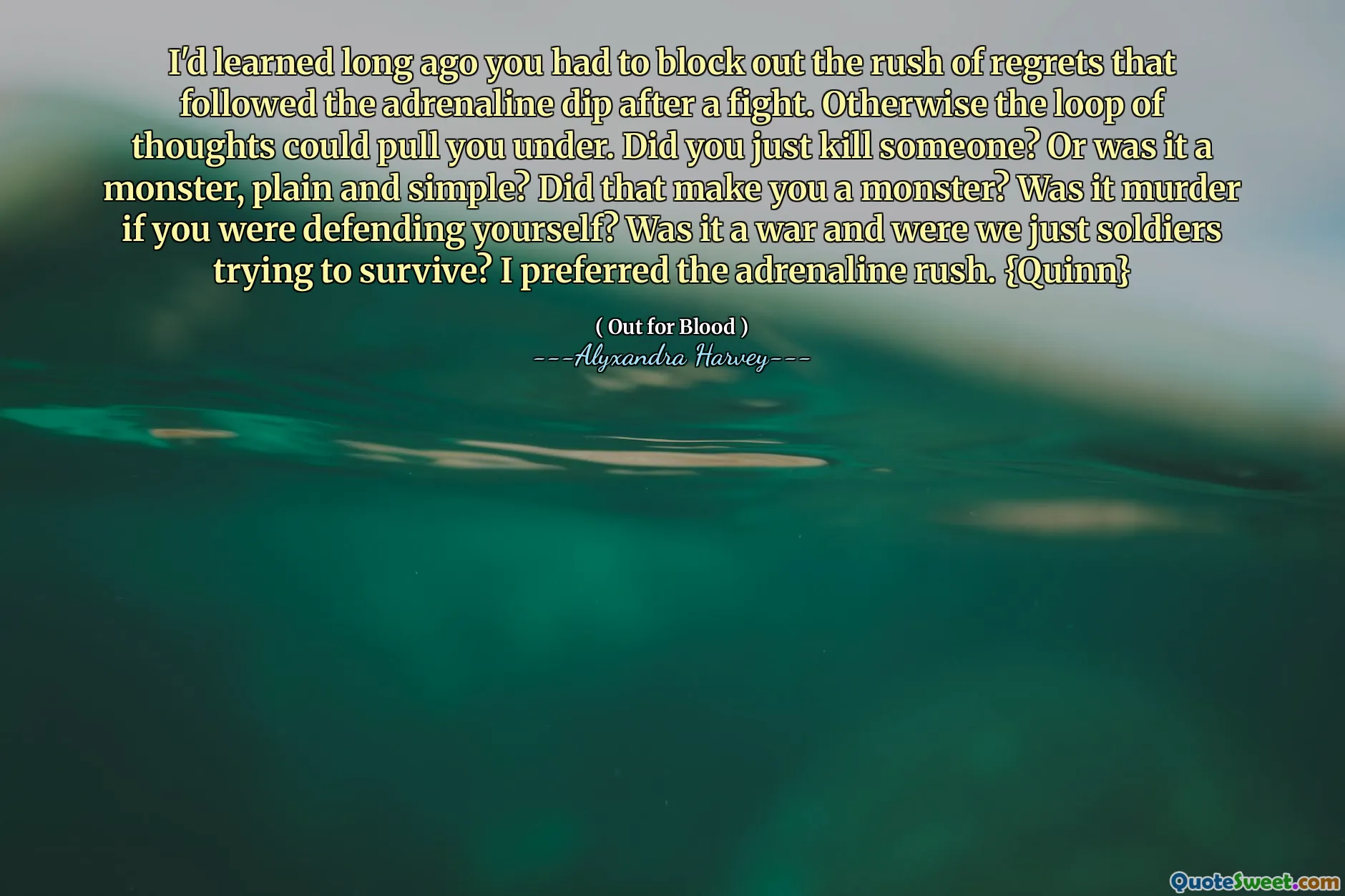
I'd learned long ago you had to block out the rush of regrets that followed the adrenaline dip after a fight. Otherwise the loop of thoughts could pull you under. Did you just kill someone? Or was it a monster, plain and simple? Did that make you a monster? Was it murder if you were defending yourself? Was it a war and were we just soldiers trying to survive? I preferred the adrenaline rush. {Quinn}
This quote from Alyxandra Harvey's Out for Blood delves deep into the psychological turmoil faced by individuals caught in life-or-death situations. It eloquently captures the struggle between instinctual survival and moral questioning. The narrator, Quinn, describes the necessity to suppress the immediate wave of regret and guilt that follows violent confrontation, highlighting an emotional defense mechanism that protects the psyche from being overwhelmed. The internal dialogue that — "Did you just kill someone? Or was it a monster? Does that label allude to guilt, or absolution?" — illustrates the complexity of human ethics when survival blurs with judgment. What stands out is the existential pondering on identity and the blurry line between perpetrator and victim: does defending oneself strip or affirm one's humanity? This contemplation challenges the notion of absolute morality by framing actions within the context of necessity and survival. The preference for the adrenaline rush over sinking into regret speaks to the allure of raw, intense emotions often sought by individuals living on the edge or those subjected to continual trauma. It also subtly alludes to the idea of dissociation or emotional armor that might form as a consequence, helping one cope with harsh realities but potentially distancing them from empathy or peace. Overall, this quote encapsulates the tension between action and reflection, instinct and conscience, making it a profound commentary on what it means to survive both physically and morally.






